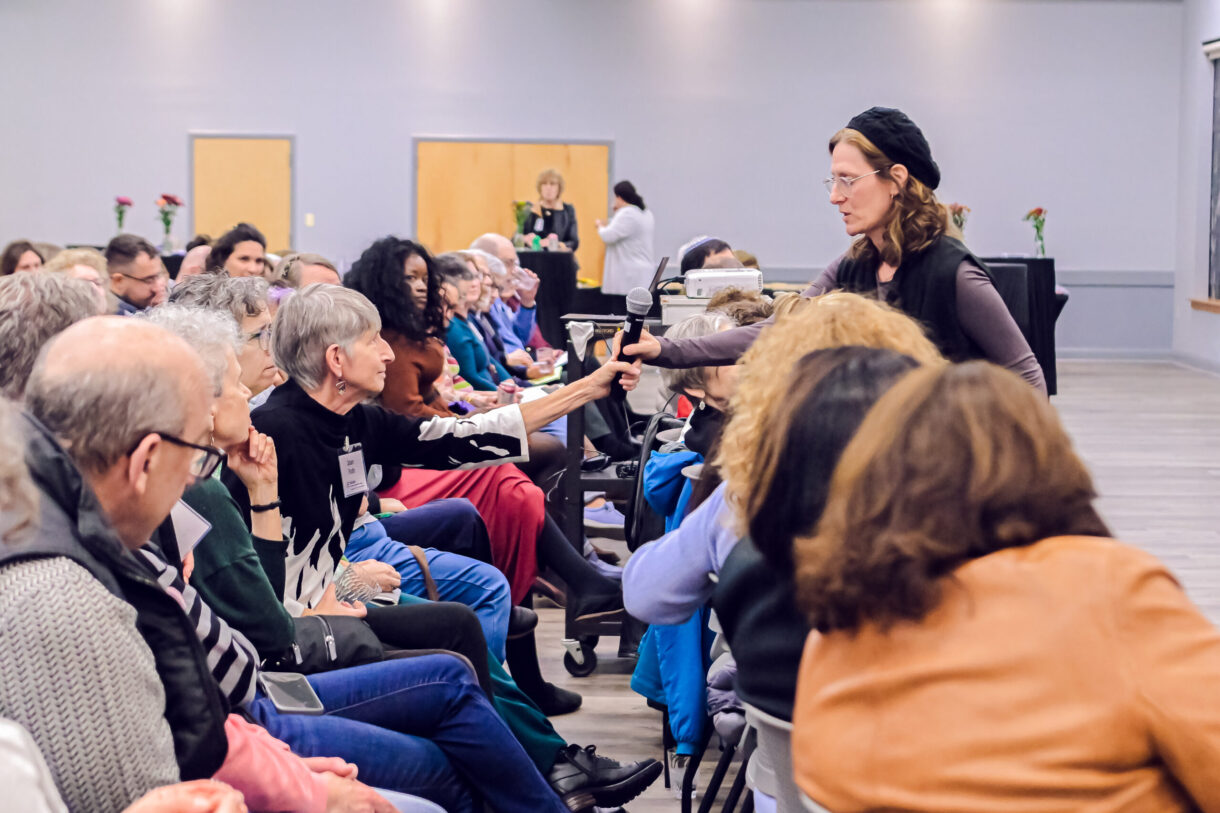Gratitude and the Carolina Way

Ashley Pressman, Executive Director, Jewish Volunteer Connection
Over my career in Baltimore, I’ve been fortunate to learn from nationally known experts and to hone my leadership style alongside professional and lay peers. Yet in the midst of this pandemic, I’ve come to realize that in truth, my leadership style was hard coded into me as a child. It is known, simply, as The Carolina Way.
Having grown up in Chapel Hill, NC in the 1980s and 1990s, I’ve long known the influence of legendary basketball coach Dean Smith on the culture and ethics of the community of my youth. It’s only been in the last year, though, that I’ve realized how much that culture has influenced me as a leader and, through me, the team at Jewish Volunteer Connection.
The core values of The Carolina Way are: Play Hard. Play Smart. Play Together. Last January, the JVC team reorganized our work flow to better define roles, clarify areas of overlap, and better understand how our job functions were deeply interconnected. The goal of the process was to help the team play together by playing smart. The result of the process was to bring into sharp relief not only the close bonds the team felt but also the significant confusion that actually existed about roles and handoffs.
Enter the pandemic. Weeks of working remotely turned into months, responsibilities shifted and grew, and fortunately, a vacant position was filled to complete the team. As the pace picked up leading into our traditional busy season (winter,) this tightly knit team began to show signs of strain. When there’s too much to do, a miscommunication that creates extra work feels personal. When you can’t step into your colleague’s office, a question unasked leads to an assumption that shouldn’t be made… and frustration leads to further breakdowns in communication. When you can’t see your colleagues, it becomes too easy to believe that you are the only one who is overwhelmed. The team continued to care deeply about each other and about the work…but it just didn’t feel like fun anymore.
As I began to recognize this troubling trend, I was immediately reminded of some of the Carolina basketball team’s most famous moves – “point at the passer” and “raise your fist.” Coach Smith insisted that any player who scored a basket had to point to the player who passed him the ball. Shooters get the public credit but no player acts alone. Focusing on gratitude even as you celebrate success ensures that all members of the team are recognized for their contribution. At JVC, we’ve started “pointing to the passer” in our weekly staff meetings. As a Jewish organization, we know that gratitude is literally baked into our identity – the name Jew comes from the tribe of Judah (Yehuda,) whose name translates as “I am grateful.” Through this practice, team members thank each other for help with programming, planning, or just being there to talk. More than just celebrating organizational success, this practice pushes us to recognize the importance of the team to our own work.
“Raising your fist” while playing basketball at UNC means that you’re tired and need a breather. A player who takes himself out of the game can also determine when he’s ready to go back in. Players who recognize their own personal limits are players who are focused on the good of the team. At JVC, we’ve implemented this practice as part of our team huddles. Team members are invited to ask for help as they begin to become overwhelmed. We ask team members to say they need help before the crisis hits. Help will always be available to the team member who asks. Like the Tar Heels, we’ve built a culture where needing a break or asking for assistance is a sign of good judgment and dedication to the team. Because we play hard, we need to play together. As his father-in-law Yitro had to point out, even Moses couldn’t do it all himself and needed to involve others before his exhaustion turned to resentment and poor performance.
As part of this new process of defining the JVC Way, we’ve defined “wins” – clarifying that volunteers, nonprofit partners and our staff all have to be satisfied with an interaction for it to be fully deemed a success. We’ve defined “losses” – failing to meet goals certainly but also acting outside of our ethics and values, or wearing down our team beyond a healthy point. We’ve clarified who our “opponent” is – no easy task in JVC’s niche environment. Through these conversations, we are beginning to unpack the things that our team needs the most to be successful– we are fortunate to have a deeply committed team that is engaging fully and honestly in this process.
Even now, we’ve only just begun to scratch the surface toward fully realizing how the Carolina Way will become the JVC Way. As we’ve ritualized gratitude and team-centered work, we’ve also begun to talk about using rituals and practice strategies to build skill and purpose around tasks we dread. We’ve talked about the roles of confidence, focus, practice, and ritual in creating success when the pressure’s on – whether it’s the last few seconds of the big game or the final preparation for a big event.
As we move forward, we will remember that a team doesn’t have to be together to play together. By working hard, working smart, and working together, we will be satisfied with the work we produce, we’ll win more than we don’t, and we’ll have fun while doing meaningful work. Most importantly, our team will continue to grow together.
In this process, I have used the book The Carolina Way by Dean Smith, John Kilgo and Gerald Bell as my source text.


